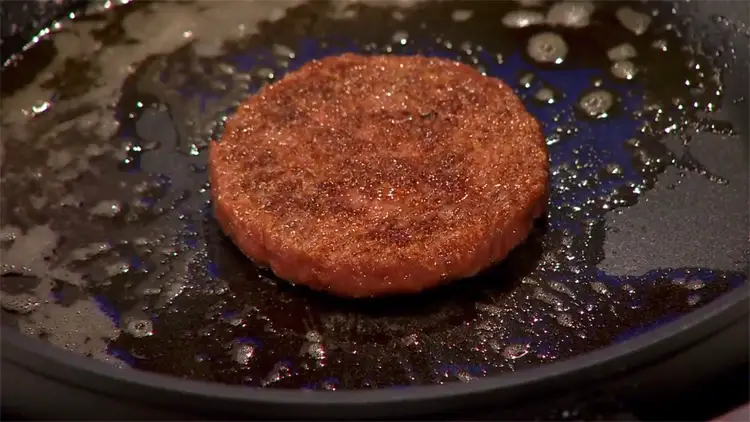
5th August 2013 World's first lab-grown burger The first burger made entirely of lab-grown in-vitro meat has been cooked and eaten in London. Last year, Dutch scientists demonstrated a rudimentary form of synthetic meat, consisting of thin strips of muscle tissue derived from a cow's stem cells. They have now gone a step further by producing a complete hamburger – cooked by chef Richard McGeown and tasted by food critics Hanni Ruetzler and Josh Schonwald. It was mixed with salt, egg powder and breadcrumbs to improve the taste, with a colouring of red beetroot juice and saffron. The world is currently using 70% of agricultural capacity to obtain meat from livestock. On current trends, meat demand is forecast to double by 2050. To produce a single hamburger requires 2,400 litres of water and involves the transport and slaughtering of animals, while a kilogram of beef has a carbon footprint of 17 kg (37.5 lb). Artificially-grown meat has enormous potential in terms of reducing this environmental impact and providing a more ethical way of creating food. Independent studies have shown that it would use 45% less energy, produce 96% fewer greenhouse gas emissions and require 99% less land than traditional methods. The burger seen here cost £250,000 ($384,000) to make. Billionaire co-founder of Google, Sergey Brin, funded the project, saying he was doing it for "animal welfare reasons". It could be many years before such food is affordable and mainstream, but this is clearly a major step towards that goal.
Comments »
|







